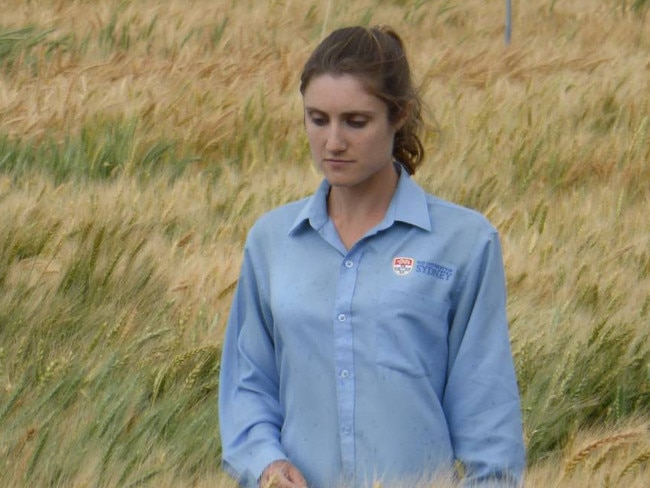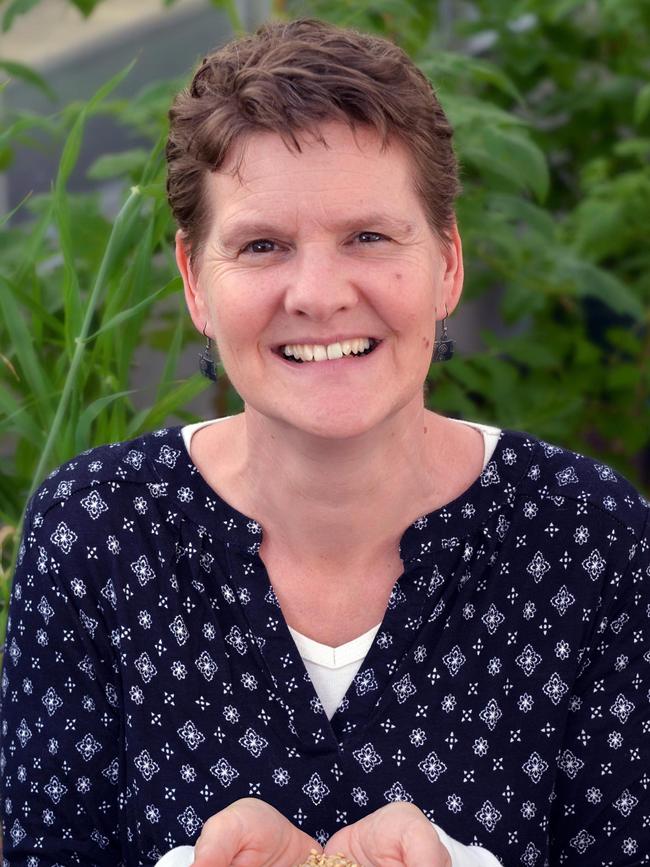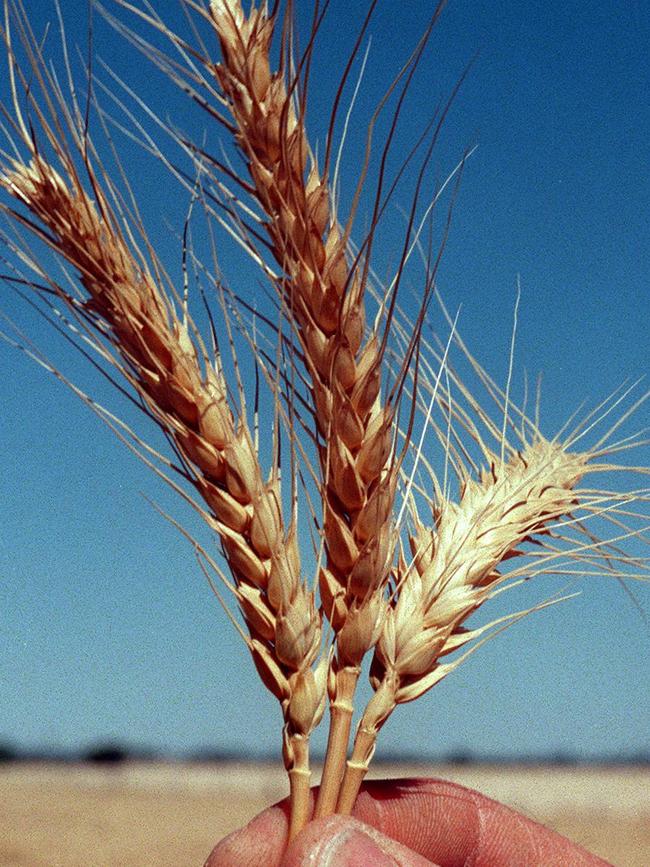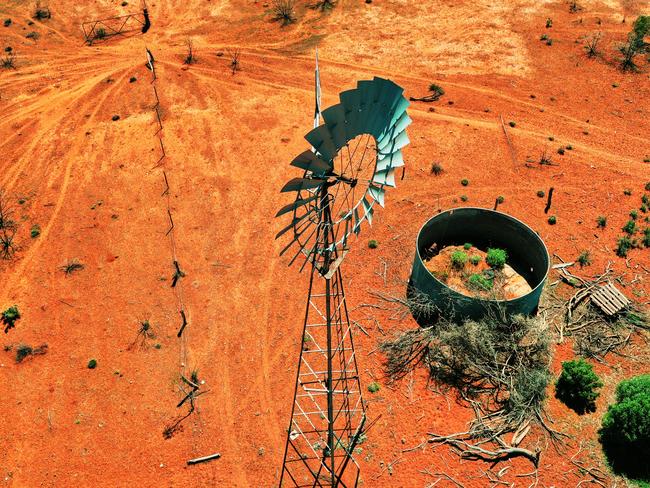Massive changes coming to Aussie farming
A forum on Australia’s food security has heard why some regions are set to lose their key crop - and the surprising areas it will be grown in future.
Business
Don't miss out on the headlines from Business. Followed categories will be added to My News.
Tasmania could become Australia’s new wheat belt because of the effects of climate change, a forum on the future of our food security has been told.
Speaking as part of an online Royal Institution of Australia briefing organised by Cosmos Magazine, Dr Angela Pattison from the Plant Breeding Institute at Sydney University said modelling was showing what climate change would do to wheat yields across the country.
“The edge of profitable wheat country now [in NSW] is around Walgett, but if climate change goes as predicted, it will be too high and too dry,” she said.
“The margin will shift east. In South Australia it will shift south, and in Western Australia it will shift west. Close to the coast, as a generalisation.”
But the same modelling showed some areas would become suitable for wheat farming, including Tasmania.
“At the moment Tasmania is too cold, with too many frosts, to grow wheat, but under climate change, the climate will be more favourable,” she said.
Dr Pattison said she was not advocating tracts of Tasmanian land be bulldozed for wheat crops, but she was using it as an example of how Australian agriculture would have to adapt to changing environmental conditions.
These changing conditions would have significant “economic and social consequences as well as the very obvious environmental ones,” she said.

Professor Rachel Burton, head of the Plant Science Department at Adelaide University, said some crops could not be easily moved, and this would inevitably force a rethink on using genetic technologies to help them cope with a harsher growing environment.
Some sectors of the population were not comfortable with genetically modified foods, she said, “but that’s the kind of technology we’re going to have to adopt, if we can’t move (crops).”
But she also warned that even advanced gene techniques such as CRISP would not work on all crops, so there would still be a need for traditional breeding techniques for many plants.
Dr Pattison and Prof Burton also hit back at recent suggestions agriculture be exempted from any push to legislate a net zero carbon emissions goal for the year 2050.
Nationals MPs including Matt Canavan and Barnaby Joyce have called for the exemption, but Prof Burton said the agriculture sector “was a major driver of emissions”.
“Farmers are an innovative and forward thinking bunch; they want to do something about this,” she said.


Dr Pattison concurred, saying “modern farmers are only in the game if they love the country” and they were motivated “to do the right thing by their land”.
Meanwhile a draft Productivity Commission report released on Thursday had mixed results about Australia’s water usage, including in the agricultural sector.
While household water use had fallen from an average of 280 kilolitres in 2000 to about 190 kilolitres in 2019, there were serious concerns about some catchments. The median volume of River Murray inflows in the 21st century was about half what it was in the 20th century, the report revealed.
But the draft report gave a big tick to water trading, saying it had encouraged farmers to be more water-efficient, and provided more scope for dealing with future droughts.
Trading had also enabled the value of irrigated agricultural production “to increase in most years over the past decade despite considerable variation in water use between wet and dry years,” the report found.

But the report also cautioned that public confidence in the management of water in the Murray-Darling Basin had been undermined by noncompliance with water licence conditions and a lack of transparency around water management decisions.
In 2019, a furore erupted when it emerged the federal government had spent $79 million to buy water entitlements in Queensland from a company once managed by Energy Minister Angus Taylor, without an open tender process, only for the entitlement to yield no actual water. (Taylor was not a director of the company at the time.)
The Commission report called for “more than water accounting” in water trading, with metering and measuring of water take, better reporting and effective enforcement systems.





